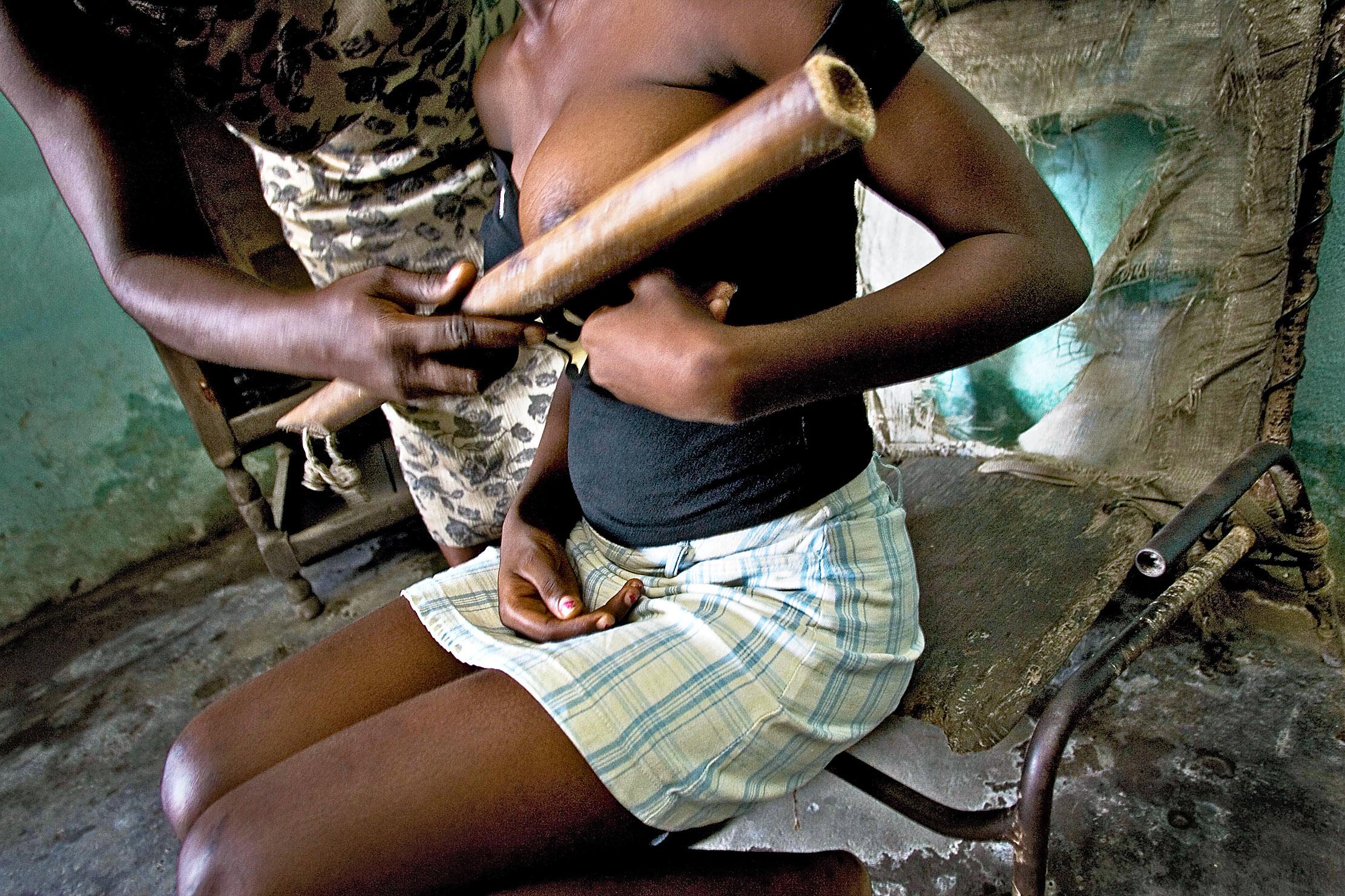When Cynthia started growing breasts and menstruating at seven, her mother and aunty became worried.
“They said that I was too young. And since I had started menses, they feared I would be raped or deceived, which might result in pregnancy,” she said.
Her mother and aunty concluded to suppress the breasts and flatten them forcefully. They used a hard object to press the breasts several times daily and continued for several days until they sagged.
But every press with the object inflicted pains and traumatised young Cynthia.
“I cried, and because of that, I did despise my mom and aunt at some point because it was really a painful experience.”
Besides, the procedure insulted in Cynthia having unbalanced breasts. She is now 32 years old, and every time she looks at her breasts, she relives the pain with renewed sadness.
“My boobs never remained the same. My breast muscles became weak, and I have saggy boobs. I always felt my mom hate me because that changed my affection towards her,” Cynthia said.
The crime of breast ironing
Sometimes called breast ironing or flattening, the procedure is a gravely harmful exercise that uses a hard object or a heated substance to repeatedly pound or press an adolescent’s breasts to delay or halt their development.
It is rooted in culture in Nigeria and other African countries like Togo, the Republic of Guinea, Côte d’Ivoire, Kenya, Zimbabwe, and Cameroon.
The reasons for the practice vary from community to community. While in some communities, it is an effort to uphold, sustain and command appropriate sexual behaviours from girls, in others, female sexuality and development is believed to be something to be ashamed of, denied, or hidden.
According to a report by the Africa Health Organisation, at least 3.8 million women across Africa are victims of this under-reported crime against innocent girls.
The report said 25-50% of girls are affected in some West African countries like Cameroon and Nigeria.
In Cynthia’s community in southern Nigeria’s Cross River state, most girls are culturally subjected to the procedure, mainly carried out by their mothers or some mother figures.
Nothing good about it
From a scientific standpoint, there is nothing positive about the practice; instead, it brings long-lasting health and psychological consequences.
From increased risk of cysts (air and fluid in breast tissues) to depression to breast tissue damage to later interference with breastfeeding to an imbalance in breast size to infection from scarring, the consequences are grave.
“It does a lot [damage], including psychological scarring of the girl child and destroying the girl child’s beauty. Pat-Enike Gladwin, head of the intensive care unit at Zenith Medical Centre in Abuja, told Prime Progress.” These are some of the harmful practices we campaign against in the medical field; it’s actually a no-no practice medically.”
More than 25 years after her breasts were ironed, Cynthia’s pains seem never-ending. Now she wishes that parents who subjected their children to such horror should be prosecuted because the practice runs against Nigeria’s Child Right Act, which criminalises all forms of child abuse.
“I can’t ever wish that on my enemy. No parent should indulge, and they [those who do it] should stop and be arrested,” she said.
NOTE: Cynthia is not the victim’s real name; we used this pseudo-name to hide the victim’s identity.
When Cynthia began experiencing early puberty at seven, her family resorted to breast ironing, a cultural practice in parts of Africa intended to suppress breast development. This painful and traumatic procedure, performed by her mother and aunt, left Cynthia with lifelong physical and emotional scars, resulting in unbalanced, saggy breasts and strained family relationships.
Breast ironing, also known as breast flattening, involves using hard objects or heated substances to halt breast growth. It is prevalent in countries like Nigeria, Togo, Kenya, and Cameroon, affecting 25-50% of girls in some regions. The practice aims to prevent early sexual activity and unwanted attention but leads to severe health issues including cysts, infections, mental distress, and impaired breastfeeding.
Medical experts condemn breast ironing due to its lasting negative impacts. Despite legal protections against such child abuse in Nigeria, the practice persists. Cynthia, now 32, advocates for the prosecution of those who subject children to this harmful tradition, stressing its violation of children's rights.
Note: Cynthia's name has been changed to protect her identity.






